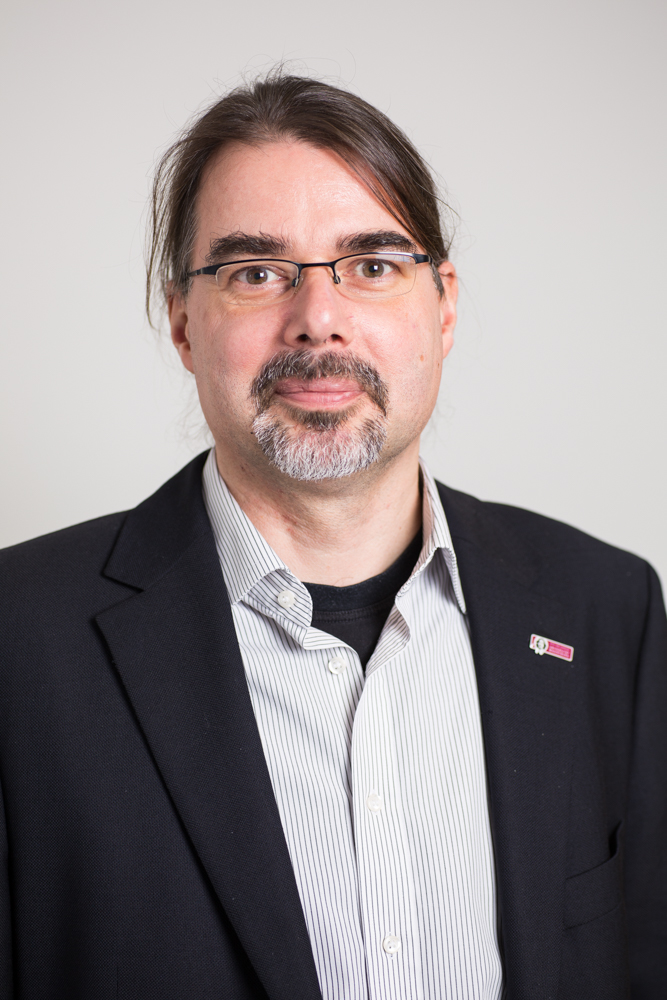Prof. Dr.-Ing. Andreas Nürnberger

Prof. Dr.-Ing. Andreas Nürnberger
.jpg)
Andreas Nürnberger grew up in Bad Sachsa, about 50 km East of Göttingen, directly on the former border between East and West Germany. He did his Abitur there in 1987, and – instead of going directly to university due to his strong interest in applied research – first did an apprenticeship as a mathematical-technical assistant with the German Aerospace Center (DLR) in Göttingen. As he realized that also the more theoretical part of computer science can be fun, he joined the Technical University of Braunschweig in 1990 to study computer science, completing his Diploma (Master’s) six years later.
His move to the faculty of computer science at OVGU occurred in 1997 when his mentor and doctoral supervisor, Prof. Rudolf Kruse, moved from the Technical University of Braunschweig to Magdeburg. Andreas earned his PhD (Dr.-Ing.) with Prof. Kruse with a thesis entitled “Recurrent Neuro-Fuzzy Systems for the Analysis of Dynamic Systems” in 2001.
He subsequently spent two years as a post-doctoral fellow working with the founder of fuzzy set theory Lotfi A. Zadeh at the University of California at Berkeley, and was appointed the rank of Junior Professor in Magdeburg in 2003, having secured funding through the prestigious Emmy Noether program of the German Research Foundation (DFG). In 2007, he was promoted to a tenured Professor.
The main focus of his research group, the Data & Knowledge Engineering Group (DKE), is the development of methods for interactive information organization and exploration supported by intelligent (AI) based methods. This involves the development of methods, that monitor and analyse the behaviour of individual users. The goal is to obtain information about their needs and interests to reorganise the structure and the presentation of the considered information in order to support users individually. Examples of recent research activities are the design of search engines for kids, user behaviour studies e.g. using eye tracking, AI based analyses of medical images and more recently the design of digital twins for mobility research (www.niimo.ovgu.de/en/IMIQ.html).
In the courses offered by his DKE group, students are conveyed a fundamental introduction in current technologies and have manifold possibilities for collaboration in current interdisciplinary research projects.
Andreas Nürnberger served the FIN as Vice-Dean from 2012–2014, and as Dean from 2014–2020. During this time, he broadened the interdisciplinary co-operations especially with the Engineering and Humanities Faculties and improved the study and working atmosphere e.g. by establishing meeting spots like the Cafebar and the terrace in front of the faculty building.
Andreas wishes the new first year students of our BiBa – and also those in the FIN’s other degree programs – Good Luck in your first steps. His advice to you: Never get behind on your homework because you’d have to skip bits so as to catch up!